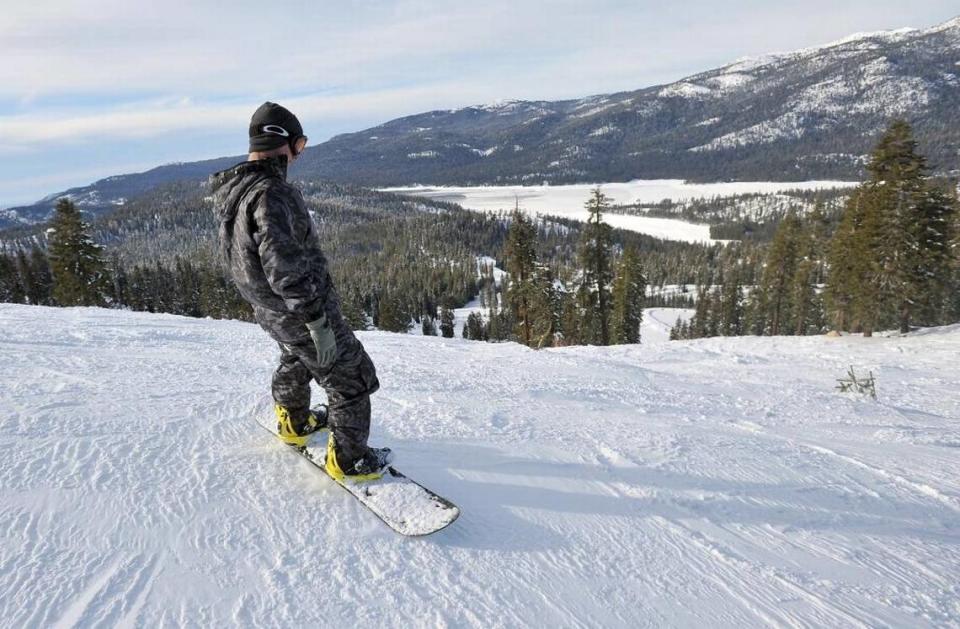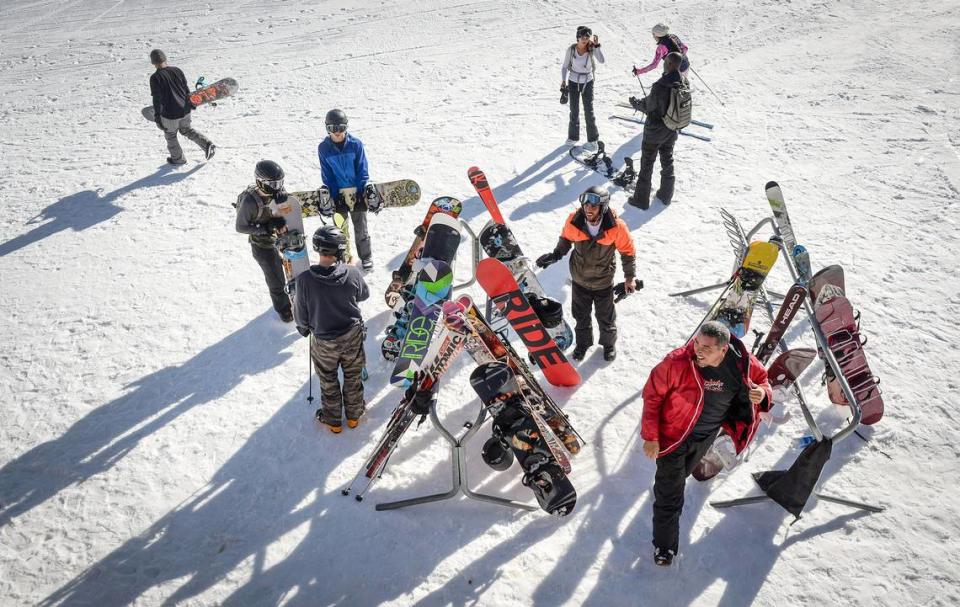China Peak is profitable. Here’s why owner sold to growing California ski resort chain
China Peak Mountain Resort was not for sale. Tim Cohee, its managing partner and operator since 2010, answers that question with a quick “No.”
Nor was the Central California ski and snowboard area, 65 miles east of Fresno in the Sierra National Forest, in a financial bind. In fact, Cohee says the last two years of winter operations were so profitable they allowed China Peak to be free and clear of all its debts.
So why did Cohee and his two partners decide to sell the resort to a Chicago-based private equity firm named Invision Capital and Karl Kapuscinski, the president/CEO of Mountain High Resort, for an undisclosed sum?
The simple answer is because they got an enticing, all-cash offer. From a company that has been expanding its ski resort holdings in California and needs China Peak to plug a hole in its market share.
But of equal importance, Cohee said, were Kapuscinski’s assurances that he and the investor group wanted China Peak to continue operating just as before — with Cohee staying on as general manager and the entire staff in their current positions.
Opinion
“The best thing, from our customers’ perspective, is (the new owners) don’t want to do anything different,” Cohee said during a phone interview Saturday morning, one day after the sale was announced, and just as it began to snow outside his office.
“In fact, they were very insistent that (I) needed to be part of this deal,” Cohee continued. “They said, ‘You really need to continue to operate the resort because one reason we’re buying it is because we like what you’ve done there.’ So let’s keep going.”
Cohee described Kapuscinski, the operator of Mountain High in the San Gabriel Mountains east of Los Angeles, as a longtime industry colleague who over the last five has become a close friend.
In 2021, with Invision Capital’s backing, Kapuscinski purchased Dodge Ridge from the family that had owned the small Tuolumne County ski resort since the 1970s. By simple geography, China Peak then became the growing chain’s next target.
According to Cohee, Mountain High draws skiers and snowboarders from throughout Southern California and as far north as Bakersfield. Dodge Ridge’s customer base ranges from Merced to Stockton and parts of the Bay Area.
What’s missing in between, Cohee said, is a large swath of central California (both the San Joaquin Valley from Fresno to Bakersfield and the Central Coast) where the Huntington Lake resort he owned for 12½ years dominates the market.
“They didn’t buy China Peak because we were struggling or because they wanted to make big changes,” Cohee said. “They purchased it because it was a strategic buy to make their ultimate season pass work.”

Era of ski resort consolidation
Within the ski industry, the last two decades have been an era of consolidation. Many resorts that had been independently owned and part of small chains were snapped up by large corporations eager to expand marketing opportunities across a growing customer base.
While the company that purchased China Peak isn’t on the level of the so-called “big four” (Vail Resorts, Alterra Mountain Company, Boyne Resorts and POWDR operate a combined 71 ski areas in North America), the concept remains the same.
For a little more than the cost of a season pass, China Peak customers starting in 2023-24 will be able to purchase one that’s good at Dodge Ridge and Mountain High as well.
But perhaps more importantly from the company’s perspective, it will have the ability to market two Sierra resorts (China Peak is nearly twice the size of Dodge Ridge in terms of skiable acres) to its large Southern California customer base.

“It’s a model that clearly works because you sell more passes,” Cohee said. “You can sell passes for each individual resort, then sell a pass that’s good for all of them with extra benefits. The whole ends up being greater than the sum of its parts.”
Cohee said Kapuscinski initially called him about purchasing China Peak about a year ago. He essentially told his friend, “No, thanks. We’re good.” But over the next few months, Kapuscinski remained persistent.
“Finally things got to the point where it’s ‘We’re cash buyers and we’re not looking for discounts. We’re paying market rate,’ ” Cohee said. “So finally I called my two partners, Ross (Blackburn) and Chris (Hecker) and said, ‘This is an opportunity that we may not see again for a while’ and ‘If they’re willing to pay our price, we should consider it.’ That’s exactly what happened.”
An ‘all-time great roller coaster’
Cohee took pride in being one of California’s few remaining independent ski resort operators. But his stewardship also coincided with two prolonged droughts and other years where massive snowfall overwhelmed the resort’s facilities and staff. The uncertain impact of climate change also hovers over the industry.
In 2015, China Peak nearly went out of business. During our conservation, Cohee recalled a photo taken for a column I wrote about the resort’s struggles.
“I look like I was about to start bawling,” he said with a laugh. “Out there by Sundown Ridge when we had one (expletive) little run open. That was one of the disaster years, one of the seven disaster years we had.”
The last two years have been much kinder from a financial perspective. Despite a lack of natural snow, a prior $3 million investment in China Peak’s snowmaking system was enough to satisfy skiers and snowboarders tired of being cooped up by COVID-19.
“This has been one of the all-time great roller coasters,” Cohee said. “Resorts like ours, where people can drive up and back the same day, did fantastic. If people knew the actual numbers, they would go OMG.
“It’s our success in 2021 and 2022 that allowed us to be in the situation we’re in and made us attractive to a buyer.”
A buyer that really, really wanted China Peak.

